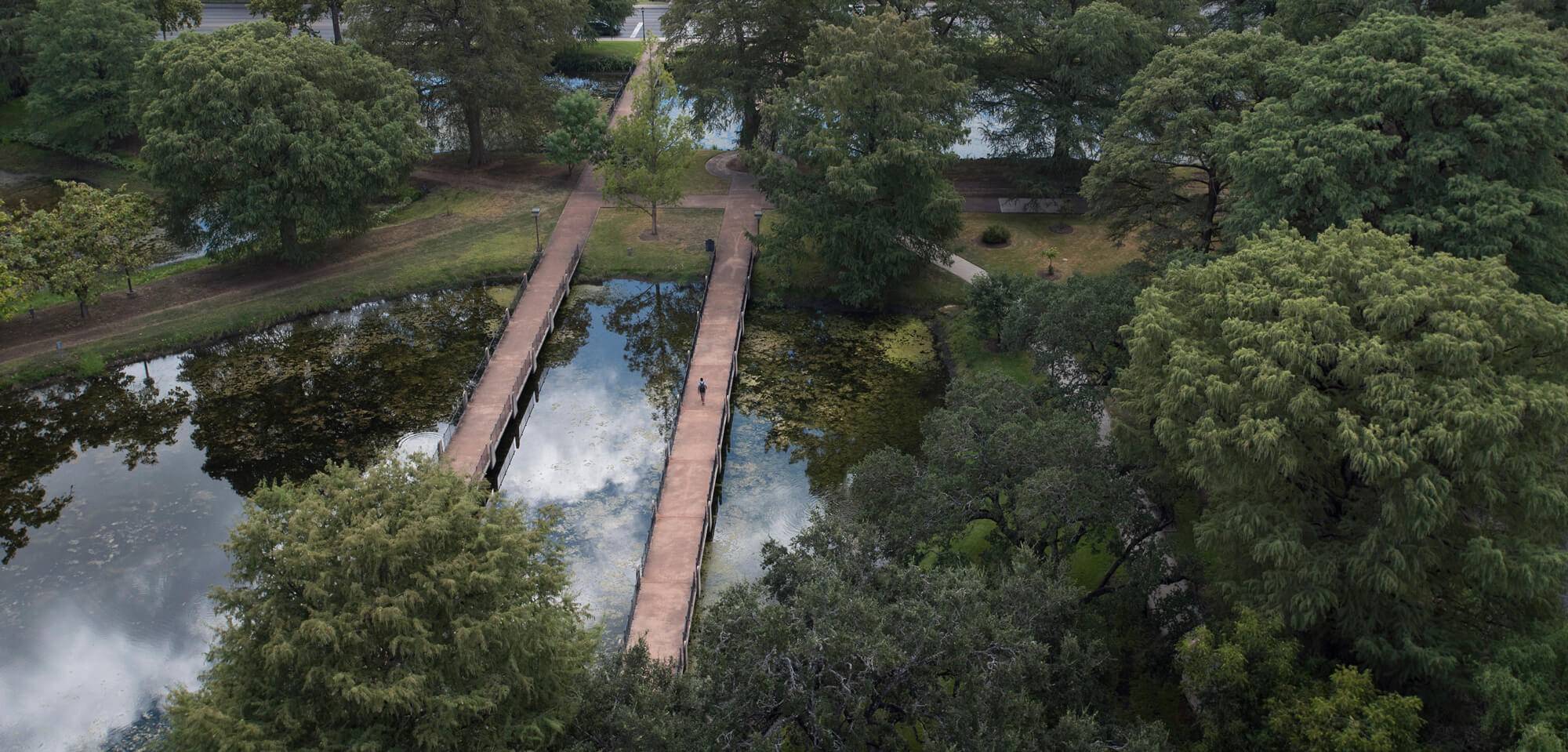by Emma Carberry
Outreach Coordinator, College of Education
June 8, 2018
In August 2017, Texas State University President, Dr. Denise Trauth, announced an agreement between Texas State and the Universidad de Castilla-La Mancha (UCLM) to facilitate student and faculty exchanges. This February, Marta Torrijos began a four-month appointment as a Faculty Visiting International Scholar in the Counseling, Leadership, Adult Education and School Psychology (CLAS) department, becoming the first exchange visitor in this new international partnership.
Torrijos is both a dissertation student and a faculty member at UCLM, working in their Psychology department. When discussing her time at Texas State, Torrijos says she has received more opportunities than she anticipated. For example, she never expected to be given the opportunity to present her research ideas at one of the College of Education Research Office’s monthly symposia. “I never had the possibility to go to a symposium to speak just about your interests,” Torrijos said of the experience. Additionally, as she leaves Texas State and returns to UCLM, Torrijos will be working on a collaborative research project with Dr. Andrea Dennison, Assistant Professor of School Psychology, that will expand into Spain. She says that this opportunity has been so valuable to her because in the past she had “never expected to participate in an international project and suddenly it’s going to be real.”
Perhaps the most impactful opportunities Torrijos describes, though, are those that helped her to expand her dissertation. She is very grateful to both Dr. Dennison and Barbara Potts, Alkek Librarian. Torrijos says that through their assistance three of the scales in her dissertation instrument have been “born here at Texas State.” Torrijos’ study originates from her observation that it can be dangerous when future teachers do not have a full understanding of how the human brain works. Therefore, her dissertation focuses on future teachers’ own scientific knowledge and how that knowledge (or lack thereof) may lead them to hold misconceptions about how the brain functions, which influences their teaching styles in the classroom.
In order to showcase the most complete picture, Torrijos will collect data not only from her own students at UCLM, but also from Texas State students via an online survey later this year. She is grateful to Professor of School Psychology and Associate Dean for Research & Sponsored Programs, Dr. Jon Lasser, whose input she says was critical in completing the IRB process that allowed her to expand her data collection to Texas State. Torrijos views the comparison between American and Spanish students as crucial to her dissertation and calls the differences between science education in the United States and Spain “really amazing.” In fact, she recalled being so amazed by the prominence of science in American schools that once, when she “discovered a poster about the brain in a school, [she] started to cry.”
As she finishes up her time at Texas State, Torrijos says the benefits of her visit were “really huge.” Not only has she made progress as an academic, but she has also come to love the campus culture at Texas State, citing the Alkek Library as one of her favorite places to work. She says she was surprised by “this feeling of community,” something she hasn’t experienced in the same way on the UCLM campus. She is especially thankful to “the helping hands of Texas State,” including Dennison, Potts and Lasser, as well as Dr. Michael O’Malley, CLAS Chair, with whom she was able to speak Spanish and whose support was invaluable, and Jasmine Phelps, CLAS Administrative Assistant III, who “has taken care of [her] from the beginning to the end.”
